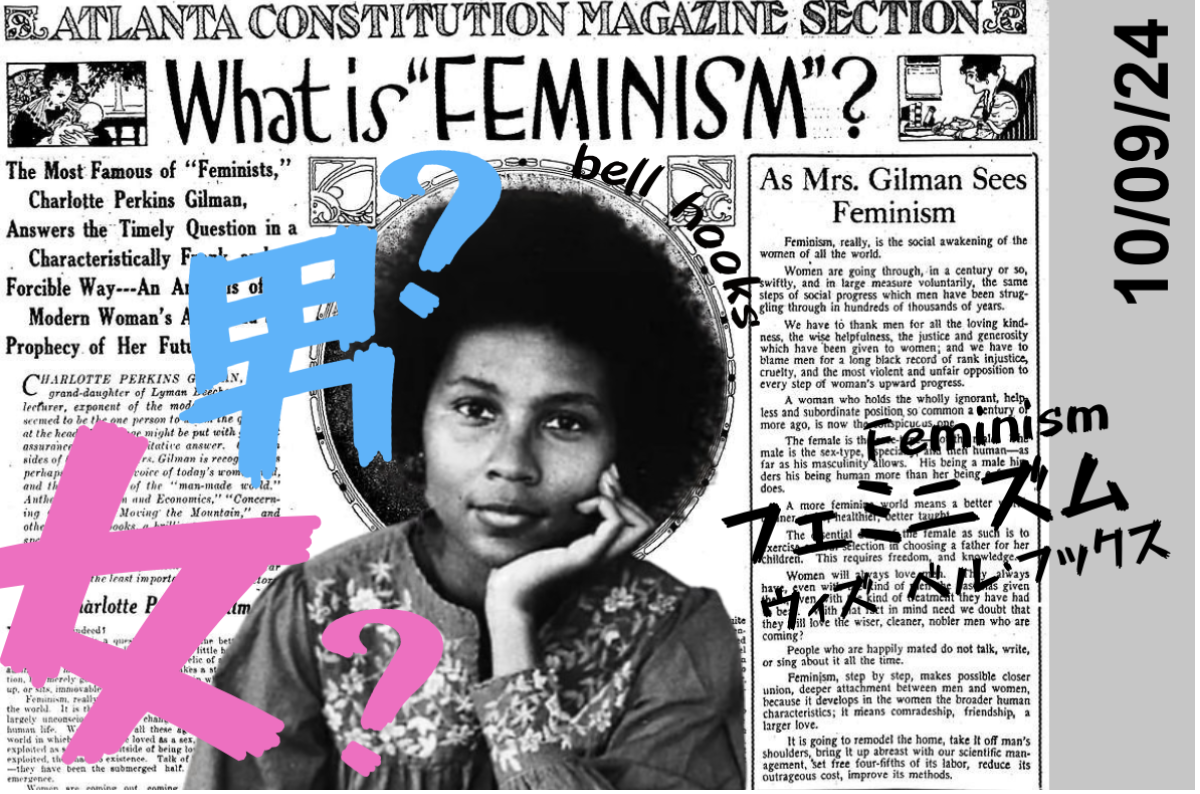英語哲学対話に参加している高校生のRicoが自身の気づきをブログで発信します。

Quick review of our ideas from last week:
- Human societies have changed drastically over the last 100 years; some ideas we have about men and women are out of date.
- Ideas about men and women are linked with behaviors each sex is allowed to display.
- Ideas about men and women are connected to family roles. Men should be strong to work fields or fight wars, to protect and provide; women should be empathetic and aware to manage family relationships.
- Some ideals about men and women connect to physical facts—men are generally stranger, only women can give birth, and so on.
- Norms are supposed to guide and help society. Those that don’t should change.
This review was provided by Mr. Dutson during the session this week. We read each of the ideas out loud, and made sure everybody was onboard with the topic. I actually had a question lingering in my mind from last week, and we decided to discuss it during this session.
What we discussed this week:
How much should we let traditional ideas about men or women influence our behavior?
Historically speaking, so-called ‘traditional ideas’ have been created by significant patterns in our previous actions, which then influence our current behaviors. Sometimes, the ideas and actions can foster a feedback loop in how they affect one another, creating a more complex cycle. For example, in World War I, women were portrayed as those who give care, such as by working as nurses, administrators or munitions workers. This idea that women were behind the battle lines to take care of and supply predominantly male soldiers boosted patriarchy, which already existed in societies. Although we are not at war now, patriarchal ideas can still influence how both men and women behave.
This extent to which we should let gender roles regulate our behavior fascinated me because these rules are not legalized. In other words, even if a person behaves differently from what is accepted as right, the person will not be thrown into jail or fined. Gender roles are not law, but even so, we still tend to follow them, especially in Japan. However, how much really should these ideas influence the way we act? Are they helpful, or harmful?
Our class agreed that we should not let traditional ideas influence us a lot, but we should still remember that men and women have different bodies and capabilities. To not let these ideas influence us, it is important to be more informed of different ways to act in a given situation. Traditional ideas can influence us more if we only know them as truths. Again, it is important to note that these ideas are merely generalizations, but if we are only exposed to this information, we have no way of knowing beyond the ideas. However, if we know other possibilities, then traditional ideas would have less influence on us. Therefore, we should be educated to give ourselves more choices about how we behave. This idea is linked historically with women being denied education, such as in Japan before the late 1860s. Back then, girls were able to learn, but only about their families' work or housework. Some were taught how to read and write but not to an extent where they were learning high-level academia. Without such education, women have fewer career options, and they would not think that they can become doctors (even if they had the potential to). All things said, it is impossible for a person to know or think of all the possibilities, meaning that traditional ideas would still have some influence over how we behave.
Recently, there is a growing population of LGBTQ people, which should be encouraged as they are able to express themselves in the way they want. However, there are also people who are drawn to nonstandard gender identities just because they want to be part of the “community” or because they want to stand out by being nonstandard. Do people who identify as LGBTQ always make that choice freely?
To give another example, I have always wanted to become a mother when I grow up. But am I making this choice because I want to or because society expects me to? If we say we should not let traditional ideas influence our behavior, this implies that we have the ability to cast off typical ways of thinking. But how much can we really resist these ideas?
Some women have decided to not become mothers at all. They want to work and earn money themselves, and live freely by traveling, for example. While there is nothing wrong in making this choice, simply deviating from what is considered traditional does not make the choice better. Working can be a good choice if it was appropriate to make this decision, considering multiple factors like one’s poor financial situation or expensive purchases (e.g. a car). However, simply choosing to work to stand out is not a good choice because the person is only being reactionary, or choosing the opposite thing to what is expected just because it is the opposite. Indeed, she has not wrapped her head around other factors (e.g. future plans, relationships, location of work, etc). In this sense, it is wrong for these women to disrespect others who choose to be submissive and build a traditional family. This disrespect may come from the women being reactionary as they may choose to work just for the sake of being nontraditional. But ironically, these women are still under the influence of traditional ideas because to think of the opposite, what they are trying to oppose must also be taken into their consideration. Similarly, reactionary people may choose to be part of the LGBTQ people to go against the standardized gender identities and roles.
This week, we were able to build on the notions of traditional ideas and gender roles and how they influence our behavior. I was able to get more insight into this topic, but I believe that the question still remains unanswered. I wish the session was much longer so we can go further into the depth of this question. Maybe, this is still relevant to what bell hooks might say about feminism next week!




